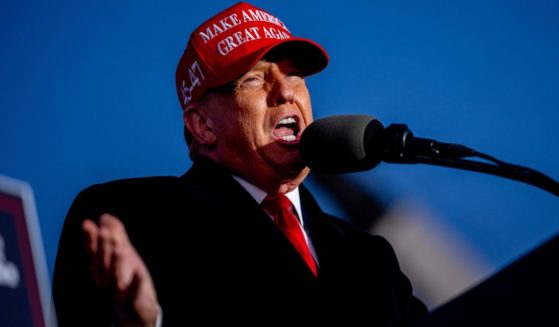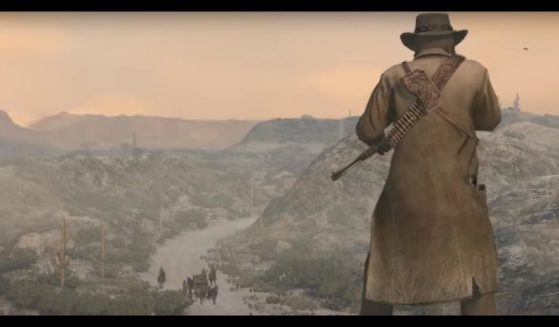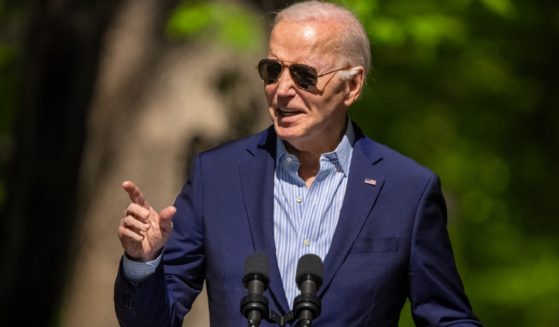Rep. John Lewis Reveals He Has Stage 4 Pancreatic Cancer
Democratic Rep. John Lewis of Georgia, an icon of the civil rights movement who marched with the Rev. Dr. Martin Luther King, revealed Sunday he has stage 4 pancreatic cancer.
“I have been in some kind of fight — for freedom, equality, basic human rights — for nearly my entire life. I have never faced a fight quite like the one I have now,” he said in a statement.
“This month in a routine medical visit, and subsequent tests, doctors discovered Stage IV pancreatic cancer. This diagnosis has been reconfirmed,” he said. “While I am clear-eyed about the prognosis, doctors have told me that recent medical advances have made this type of cancer treatable in many cases, that treatment options are no longer as debilitating as they once were, and that I have a fighting chance.”
Lewis, 79, said that he will not abandon his post in Congress, to which he was first elected in 1986.
“So I have decided to do what I know to do and do what I have always done: I am going to fight it and keep fighting for the Beloved Community. We still have many bridges to cross,” he said, a reference to the Edmund Pettus Bridge in Selma, Alabama, the site of the 1965 Selma-Montgomery march that resulted in Lewis and other marchers being attacked by police.
“To my constituents: being your representative in Congress is the honor of a lifetime. I will return to Washington in coming days to continue our work and begin my treatment plan, which will occur over the next several weeks. I may miss a few votes during this period, but with God’s grace I will be back on the front lines soon,” he said.
“Please keep me in your prayers as I begin this journey.”
Lewis’ announcement brought tributes and prayers from many who have known him since the days of his civil rights activism and others who admire his spirit even if they oppose his politics.
#JohnLewis is alive.
Let’s not bury him in response to a diagnosis, no matter how dire.
Think high.
Love deeply.
Be encouraged.
Encourage him. pic.twitter.com/5kaDIj174O— Be A King (@BerniceKing) December 30, 2019
We stand with you in this fight. Prayers for strength, peace, and healing Congressman Lewis. ❤️??https://t.co/4FUNt6PL6K
— Nikki Haley (@NikkiHaley) December 30, 2019
My colleague John Lewis is a fighter… and I know he’ll face this latest challenge with the same determined resolve he’s always had. Kneeling in prayer for him and his family tonight. Psalm 46:1 – “God is our refuge and our strength—a very present help in times of trouble.”
— Mark Meadows (@RepMarkMeadows) December 30, 2019
Although Lewis received a Presidential Medal of Freedom from former President Barack Obama in 2011 in honor of a lifetime of activism, the Pettus Bridge march, during which Lewis was beaten, has always been a flashpoint of his life and work.
In April, Lewis sat down with The Washington Post and spoke about the march and its context.
“We were on our way from Selma to Montgomery to dramatize to the nation and to the world that the black people and the black belt of Alabama wanted to register to vote, to participate in the democratic process. People had to pass a so-called literacy test. People were told they could not read or write well enough. People were asked to count the number of bubbles in a bar of soap, the number of jellybeans in a jar. There was African American lawyers and doctors, college professors, teachers, who flunked their so-called literacy tests. We had to do it,” Lewis said.
At the Pettus Bridge, Lewis recalled, the marchers did not get far before the way was blocked.
“We got on the other side of the bridge. There was a group of state troopers standing, and the major said — the Alabama State Police, ‘This is an unlawful march; it would not be allowed to continue. I’ll give you three minutes to disburse and return to your homes or to your church.’ And one of the guys walking with me, leading the march, by the name of Hosea Williams, said, ‘Major, give us a moment to kneel and pray,’ and the major said again, ‘Troopers, advance.’ And I said, ‘Major, may I have a word?’ He said, ‘There will be no word. Troopers, advance.’ You saw these guys putting on their gas masks. They came toward us, beating us with nightsticks, tramping us with horses,” he said.
Lewis was among the victims.
“I was hit in the head by a state trooper with a nightstick. My legs went from under me; I thought I saw death; I thought I was going to die. And to this day, I don’t know how I made it back across that bridge to the streets of Selma, back to the little church where we had left from,” he said.
“But I do remember being back at the church. They asked me to say something, and I stood up and said, ‘I don’t understand it, that President Johnson can send troops to Vietnam, but cannot send troops to Selma, Alabama, to protect people who only desires to register to vote.’ And I was hospitalized with 16 other people, and a group of nuns took care of us,” he said.
Truth and Accuracy
We are committed to truth and accuracy in all of our journalism. Read our editorial standards.












